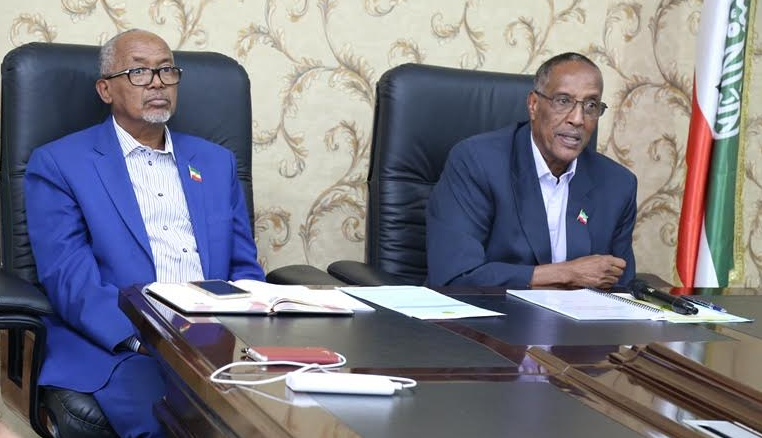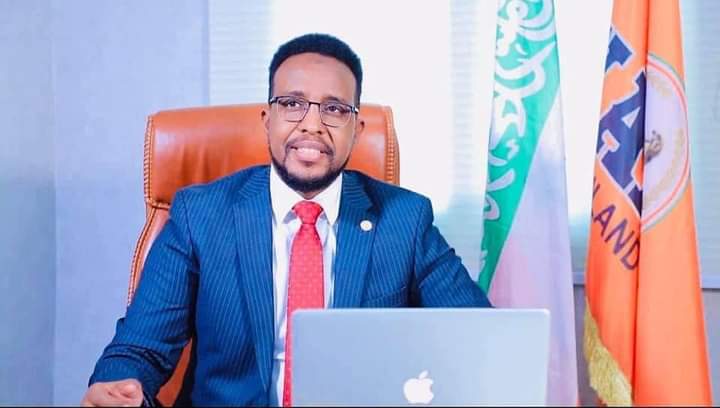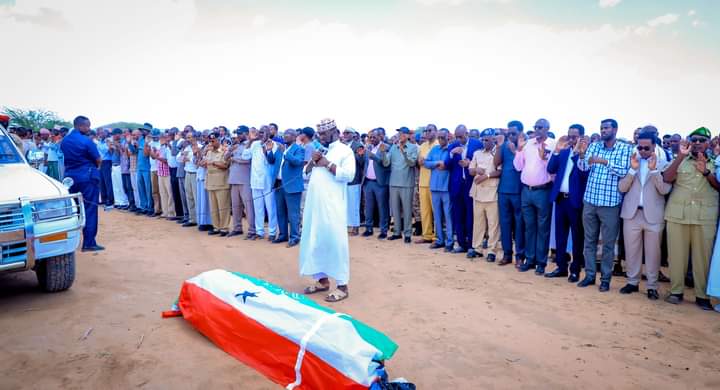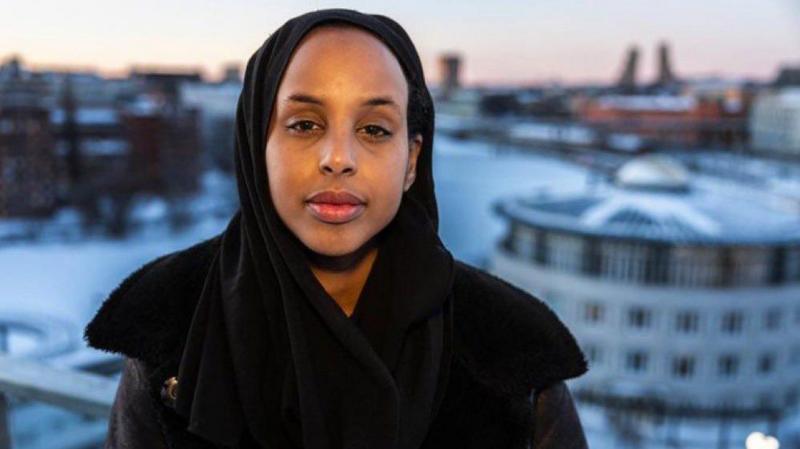Friday June 22, 2018Early one morning, Aschal Zegeye and her young family heard a knock at the door. Her husband answered it. Shortly after he was dead.“They took him outside and slaughtered him,” the 25 year-old mother of two told the Thomson Reuters Foundation in a church shelter in the city of Bahir Dar.With her one year-old baby son on her back, she spoke of the day last October when her husband was murdered by a mob and she and her children were chased from their home.“They burnt our farm. A group of men beat me with sticks… I ran away into the woods to hide for three days. Then I begged on the streets to get back here.”Aschal is one of around a million Ethiopians driven from their homes by a land and ethnicity-fuelled crisis that has gripped the Horn of Africa nation for years and escalated in recent months.Most dramatically, tensions between ethnic Somali and Oromo ethnic groups and conflict along the border separating the two regions led to the displacement of hundreds of thousands last year, most of whom have still not returned home.OLD TENSIONSThe crisis sprawls across Ethiopia, a country of 100 million people hit by anti-government protests that began in 2015 over land rights before broadening into demonstrations against authoritarian rule.It threatens the country’s fragile system of “ethnic federalism”, a constitutional model which offers a degree of self-determination to Ethiopia’s diverse communities but which critics say encourages competition along ethnic lines.As part of an effort to stabilise the country the ruling Ethiopian Peoples’ Revolutionary Democratic Front (EPRDF) in April appointed Abiy Ahmed, a 42 year-old from the Oromo wing of the ethnically-based coalition as prime minister.Though the move brought stability to most parts of the country the problem of ethnically-motivated evictions and displacement remains unresolved.Since taking office Abiy has visited most regions of Ethiopia and has repeatedly called for “unity” between its ethnic groups.“This has been a tragedy that should never have taken place,” he said of the conflict between Oromia and Somali region during an April visit to Jigjiga, capital of the Somali state.But critics argue the government has not done enough to prevent the displacement of ethnic groups in Oromia and other parts of the country since April.VIOLENCE PERSISTSHuman rights group Amnesty International said earlier this month thousands of displaced Amharas had arrived in Bahir Dar, the capital of Amhara region, from Oromia since October.Thousands more are on the verge of displacement due to violent attacks on their homes by ethnically-motivated young men, Amnesty said.Ads By Google Each day brings new arrivals, according to Father Abraham, a priest and representative of Amharas displaced from Oromia.Meanwhile, hundreds of ethnic Amharas have arrived after violent clashes in the neighbouring region of Benishangul-Gumuz where they had lived for many years.“We have been displaced three times now,” said Minale Ayalew, a 45 year-old priest and father of six who fled from Benishangul-Gumuz.“We came back here each time, asked the regional government for help, and the government said it wouldn’t happen again. But it does happen again.”At least 400,000 mostly ethnic Gedeos were displaced from southern Oromia following violence in mid-April, the National Disaster Risk Management Commission said this week.More than 4,000 houses were reportedly burnt down or damaged, and clashes beginning on June 3 displaced a further 68,000, with an unknown number dead, according to the UN Office for the Coordination of Humanitarian Affairs (OCHA).Last week, 2,500 residents were displaced from the southern city of Hawassa, according to national broadcaster Fana Broadcast. At least 10 were killed during violent ethnically-motivated protests.NOT ENOUGH LANDViolence against minorities, as well as conflicts over regional borders, have been fairly common throughout the country since ethnic federalism was introduced in 1991.Though the arrangement provides for ethnic self-administration, all nine of Ethiopia’s semi-autonomous regions have mixed populations.For example more than four million Amharas live outside Amhara region and the same is true for more than 1.5 million Oromo, according to the latest census carried out in 2007.Aschal left her village in West Gojam, central Amhara, 10 years ago for the district of Bolo Didessa in Benishangul-Gumuz.“There’s not enough land is West Gojam,” she explained. “We were told there was enough space for us to farm [in Benishangul-Gumuz], so we went there.”Under Ethiopia’s 1994 constitution all land is state-owned and all citizens have the right to freely obtain a plot to cultivate.Some of the more than 280,000 Amharas living in Benishangul-Gumuz had plots of land granted to them by regional authorities though most of those displaced from Bolo Didessa, such as Aschal, were tenants renting from the local Gumuz people.According to the federal constitution all members of indigenous and non-indigenous minorities are entitled to equal protection of individual rights everywhere in Ethiopia, including of rights to land.In practice, however, it is often more difficult for a non-indigenous group to acquire it.In Benishangul-Gumuz, for example, there is a documented pattern of regional authorities denying farming land not only to new immigrants but also to older settlers who need land.The region’s own constitution, revised in 2002, designates five ethnic groups as “indigenous”, excluding Amharas and Oromos who make up a large proportion of the local population.“Legally or constitutionally, the ‘indigenous’ communities are owners of the region,” said Zemelak Ayele, an associate professor at Addis Ababa University’s Centre for Federal Studies. “Everybody else is just a guest.”Similarly, the constitutions of Oromia and Somali regions do not mention specific ethnicities other than the titular groups, the Oromo and Somali.This can lead to local authorities turning a blind eye to the violation of the rights of minorities in the region.“Ethnic federalism implies a hierarchy of rights,” said Tom Lavers, an academic at Manchester University who has studied the land rights of Ethiopia’s ethnic minorities under federalism. “By implication that would extend to land as well.”SAFE RETURN?Displaced households should be safely returned to the communities from which they were evicted, and their properties restored or compensated, according to federal government policy.The Amhara regional government has said families returning to Benishangul-Gumuz or Oromia will be provided security, and receive compensation for damaged properties.Alternatively, displaced families can return to their original communities in Amhara.But many of the displaced interviewed by the Thomson Reuters Foundation said they were too afraid to go back to their old homes.Most of those who have arrived in Bahir Dar said there was not enough land in their original Amhara communities for them to return to and cultivate.They want to be given land to settle somewhere else in the region, something which the authorities have ruled out.Abebaw Getenet, a 30 year-old father of four displaced from Benishangul-Gumuz, said the government of Oromia had promised to resettle within the region all those Oromos displaced from Somali state last year and who were unwilling to return.“We are asking our government for the same,” he said.Mekuanint Melkanu Gesits, an official coordinating the Amhara government’s response, said his government advised those displaced from Benishangul-Gumuz to return to the region.“It’s a small minority of people that caused the problem, not the majority. Most of them are welcoming,” he said. (Reporting by Tom Gardner. Editing by Astrid Zweynert @azweynert.
advertisements
- UN seeks to mitigate environmental degradation by refugees in Dadaab - The Star
- Three men indicted for Minnesota mosque bombing - Reuters
- EU gives Kenya and Uganda Sh3.9 billion for refugees - The Star
- For Once, Mogadishu Can Watch World Cup With Little Fear - VOA
- AU Keen On Resolving Logistical Challenges Facing Its Mission in Somalia - AMISOM









